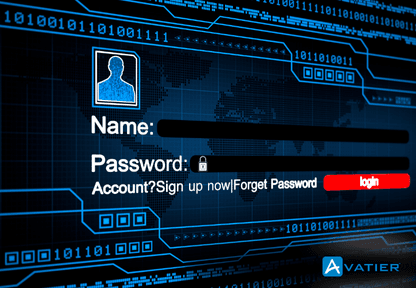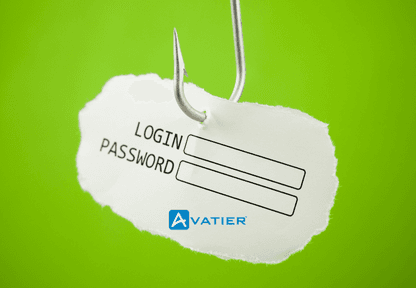June 29, 2025 • Mary Marshall
SailPoint Has No SSO: Why You Need Multiple Vendors vs Avatier’s All-in-One
Discover why enterprises using SailPoint still need separate SSO solutions, while Avatier offers a complete identity suite with robust SSO.

Enterprise identity management has become a critical cornerstone of security strategy. While SailPoint has established itself as a leading identity governance and administration (IGA) provider, organizations implementing SailPoint quickly discover a significant gap in their identity infrastructure: the absence of native Single Sign-On (SSO) capabilities.
This limitation forces enterprises into a multi-vendor approach, creating integration challenges, increased costs, and potential security vulnerabilities. Meanwhile, Avatier offers a comprehensive alternative that combines robust identity governance with native SSO functionality in a single, unified platform.
The SailPoint Gap: Missing Critical SSO Functionality
SailPoint’s identity governance solutions provide strong capabilities for managing user access rights, certifications, and compliance. However, the platform noticeably lacks a native SSO solution—a critical component of modern identity management. According to Gartner’s 2023 Magic Quadrant for Access Management, this absence places organizations in a position where they must implement and manage separate solutions for IGA and SSO functionality.
This gap creates several significant challenges:
- Vendor Sprawl: Organizations must purchase, implement, and maintain multiple identity solutions from different vendors (typically SailPoint for governance and providers like Okta, Microsoft, or Ping for SSO).
- Integration Complexity: Multiple systems require complex integrations that demand specialized skills and create potential points of failure.
- Increased Total Cost of Ownership (TCO): According to Enterprise Strategy Group research, organizations with fragmented identity solutions spend 40% more on identity management over a three-year period compared to those with unified solutions.
- Security Gaps: The handoffs between different systems can create security vulnerabilities where policies may not be consistently applied.
- Administrative Overhead: Security teams must manage multiple admin consoles, vendor relationships, and support contracts.
The Hidden Costs of a Multi-Vendor Identity Approach
When organizations implement SailPoint alongside a separate SSO solution, they often underestimate the total impact on their operations and budget. Beyond the obvious licensing costs for multiple platforms, there are numerous hidden expenses:
- Integration Development and Maintenance: Custom integrations between SailPoint and SSO providers require initial development and ongoing maintenance, especially when either vendor updates their platform.
- Training Across Multiple Systems: IT staff must be trained on multiple admin interfaces and disparate systems, increasing training costs and reducing efficiency.
- Troubleshooting Complexity: When issues arise, identifying which system is causing the problem becomes more challenging, extending resolution times and impacting user productivity.
- Audit and Compliance Overhead: Demonstrating compliance across fragmented systems requires more documentation and validation effort.
A Forrester Research report found that organizations with fragmented identity solutions spend an average of 32% more time on compliance activities than those with unified platforms.
Avatier’s Unified Approach: Comprehensive Identity Management with Native SSO
In contrast to the multi-vendor approach required with SailPoint, Avatier offers a comprehensive identity management platform that includes robust SSO capabilities alongside governance, lifecycle management, and access certification—all in one integrated solution.
Avatier’s SSO Software – Single Sign On Solutions provides enterprise-grade SSO functionality that seamlessly integrates with the platform’s other identity management components. This native integration eliminates the need for complex custom connections between disparate systems and provides a unified security model across the entire identity infrastructure.
Key benefits of Avatier’s unified approach include:
1. Comprehensive Coverage Without Gaps
Avatier’s platform offers:
- Enterprise-grade SSO with support for all major authentication protocols
- Advanced Identity Governance for certification and compliance
- Complete Lifecycle Management for automated onboarding and offboarding
- Self-service password management with multi-factor authentication
- Access request and approval workflows with risk-based controls
This comprehensive approach ensures that all identity management needs are addressed within a single platform, eliminating security gaps between components.
2. Simplified Administration Through a Unified Console
Unlike the multiple admin interfaces required when using SailPoint with separate SSO solutions, Avatier provides a single administrative console for managing all identity functions. This unified approach:
- Reduces administrative overhead by up to 60%
- Streamlines policy management across all identity functions
- Enables consistent enforcement of security controls
- Provides end-to-end visibility of user access
The Identity Management Anywhere – Multifactor Integration capabilities ensure that strong authentication is consistently applied across all access points, without requiring additional integration work.
3. Lower Total Cost of Ownership
By eliminating the need for multiple identity solutions, Avatier significantly reduces:
- Licensing costs for separate products
- Integration development and maintenance expenses
- Operational overhead from managing multiple systems
- Training costs across disparate platforms
Organizations that implement Avatier’s unified solution typically realize 30-45% cost savings compared to multi-vendor approaches, according to customer case studies.
4. Enhanced Security Through Consistent Policy Enforcement
One of the most critical advantages of a unified identity platform is the consistent application of security policies across all identity functions. With Avatier:
- Access policies are defined once and applied universally
- Authentication requirements are consistently enforced
- Risk-based access controls work seamlessly across all applications
- Security incidents are more easily detected through comprehensive monitoring
According to the 2023 Verizon Data Breach Investigations Report, 74% of breaches involve the human element, including credentials. A unified approach to identity management significantly reduces these risks by eliminating security gaps between systems.
Real-World Impact: Multi-Vendor vs. Unified Approach
To understand the practical implications of these different approaches, consider this comparison:
Scenario 1: SailPoint + Third-Party SSO
- Implementation requires integration between SailPoint and SSO provider
- Two separate admin consoles for policy management
- Potential security gaps at integration points
- Two vendor relationships to manage
- Multiple support contracts and renewal cycles
- Increased training requirements for IT staff
- Higher total cost of ownership
Scenario 2: Avatier’s Unified Platform
- Single implementation with no integration required
- One admin console for all identity functions
- Consistent security across all identity processes
- Single vendor relationship
- One support contract and renewal cycle
- Streamlined training on a single platform
- Lower total cost of ownership
The Identity Management Architecture of Avatier’s solution ensures that all components work together seamlessly, eliminating the integration challenges and security gaps inherent in multi-vendor approaches.
Beyond SSO: Additional Benefits of Avatier’s Comprehensive Approach
While the inclusion of native SSO capabilities is a significant advantage, Avatier’s unified platform offers several other benefits that SailPoint’s approach cannot match:
1. Self-Service Capabilities for Reduced IT Burden
Avatier’s platform includes comprehensive self-service capabilities that empower users while reducing IT workload:
- Self-service password reset reduces help desk calls by up to 70%
- Access request workflows with automated approvals
- Group membership management with appropriate controls
- Profile updates with governance oversight
These self-service capabilities not only improve user satisfaction but significantly reduce operational costs.
2. Container-Based Deployment for Ultimate Flexibility
Avatier’s innovative Identity-as-a-Container (IDaaC) approach allows for unprecedented deployment flexibility:
- Deploy on-premises, in the cloud, or in hybrid environments
- Scale components independently based on demand
- Implement updates with minimal disruption
- Maintain consistent security across deployment models
This container-based architecture ensures that organizations can adapt their identity infrastructure as their needs evolve, without major reimplementation efforts.
3. AI-Driven Identity Intelligence
Avatier incorporates advanced AI capabilities to enhance security and efficiency:
- Anomalous access detection identifies potential security risks
- Intelligent access recommendations streamline governance
- Automated policy enforcement reduces manual oversight
- Predictive analytics improve security posture
These AI-driven features represent the future of identity management, providing capabilities that fragmented, multi-vendor solutions struggle to deliver.
Making the Right Choice for Your Organization
When evaluating identity management solutions, organizations should consider not just the immediate functionality needs but the long-term implications of their architecture choices:
- Assess the total cost of ownership, including integration, maintenance, and operational expenses.
- Evaluate security implications of gaps between disparate systems.
- Consider administrative overhead of managing multiple platforms.
- Factor in compliance requirements and how they’re addressed across systems.
- Project future needs and how adaptable different approaches will be.
For most enterprises, a unified platform like Avatier offers significant advantages over the fragmented approach required when using SailPoint without native SSO capabilities.
Conclusion: The Power of Unified Identity Management
While SailPoint offers strong identity governance capabilities, its lack of native SSO functionality forces organizations into complex, multi-vendor environments that increase costs, create security vulnerabilities, and add administrative burden.
Avatier’s comprehensive identity management platform, with its native SSO capabilities, presents a compelling alternative that addresses the entire identity lifecycle in a single, unified solution. By eliminating integration challenges, reducing vendor sprawl, and providing consistent security controls, Avatier enables organizations to strengthen their security posture while reducing costs.
In today’s increasingly complex threat landscape, the simplicity and comprehensive coverage of a unified identity platform isn’t just a convenience—it’s a strategic advantage that directly impacts security outcomes and operational efficiency.
For organizations looking to streamline their identity infrastructure while enhancing security, Avatier’s unified approach represents the future of enterprise identity management—comprehensive, integrated, and designed for the challenges of the modern digital enterprise.









